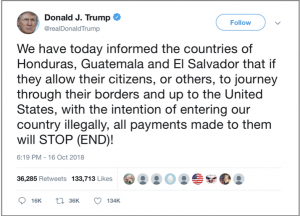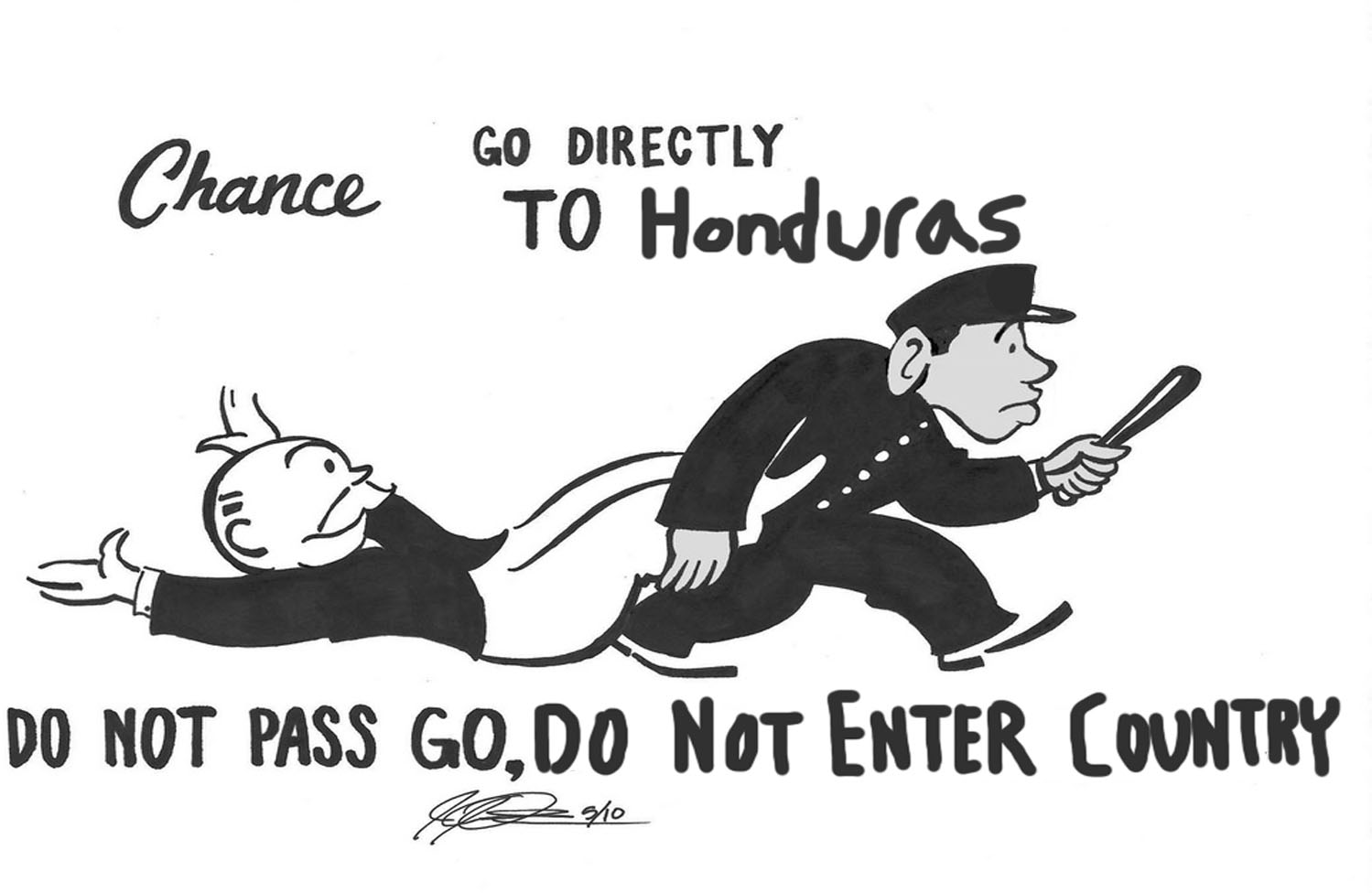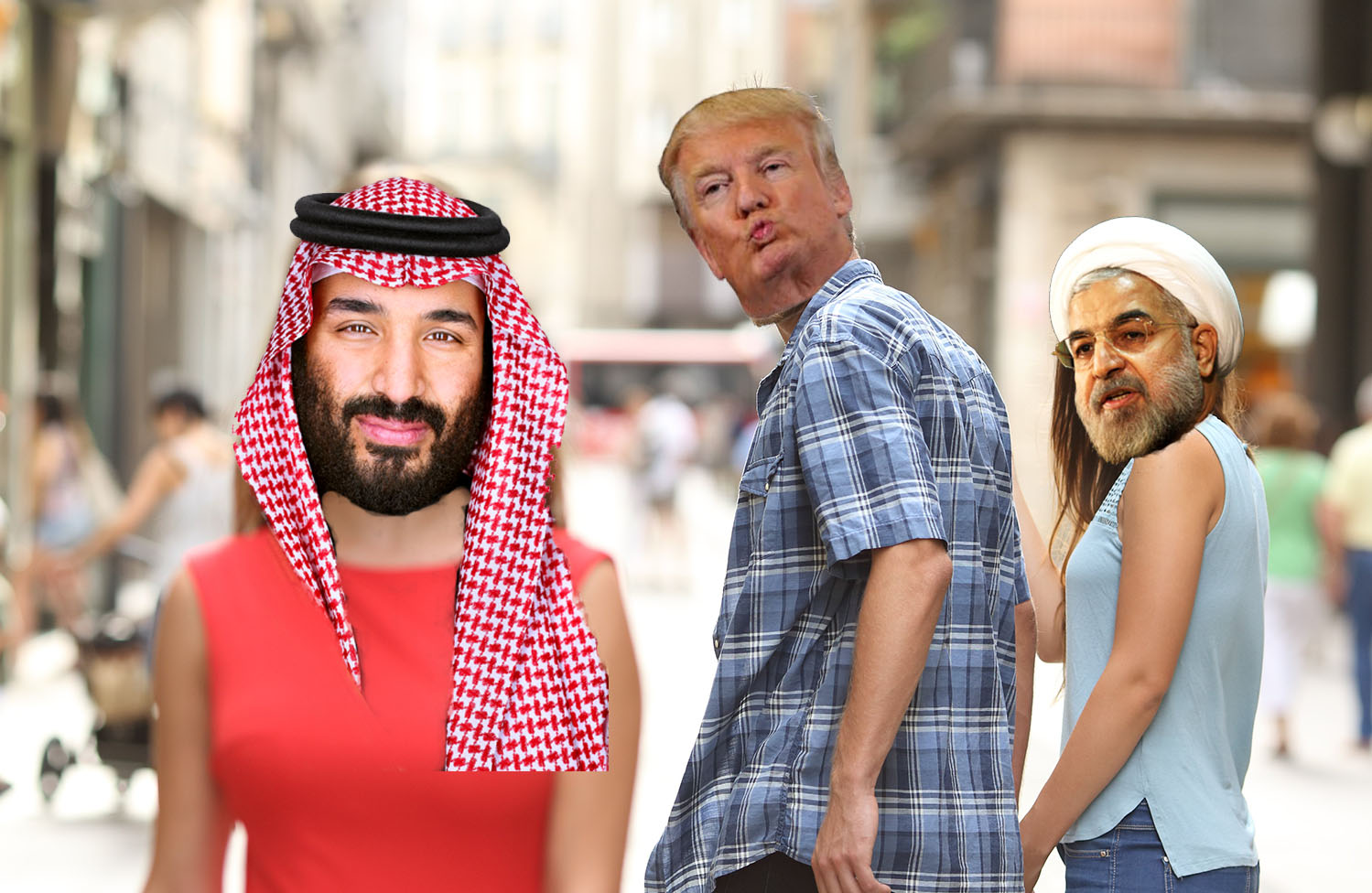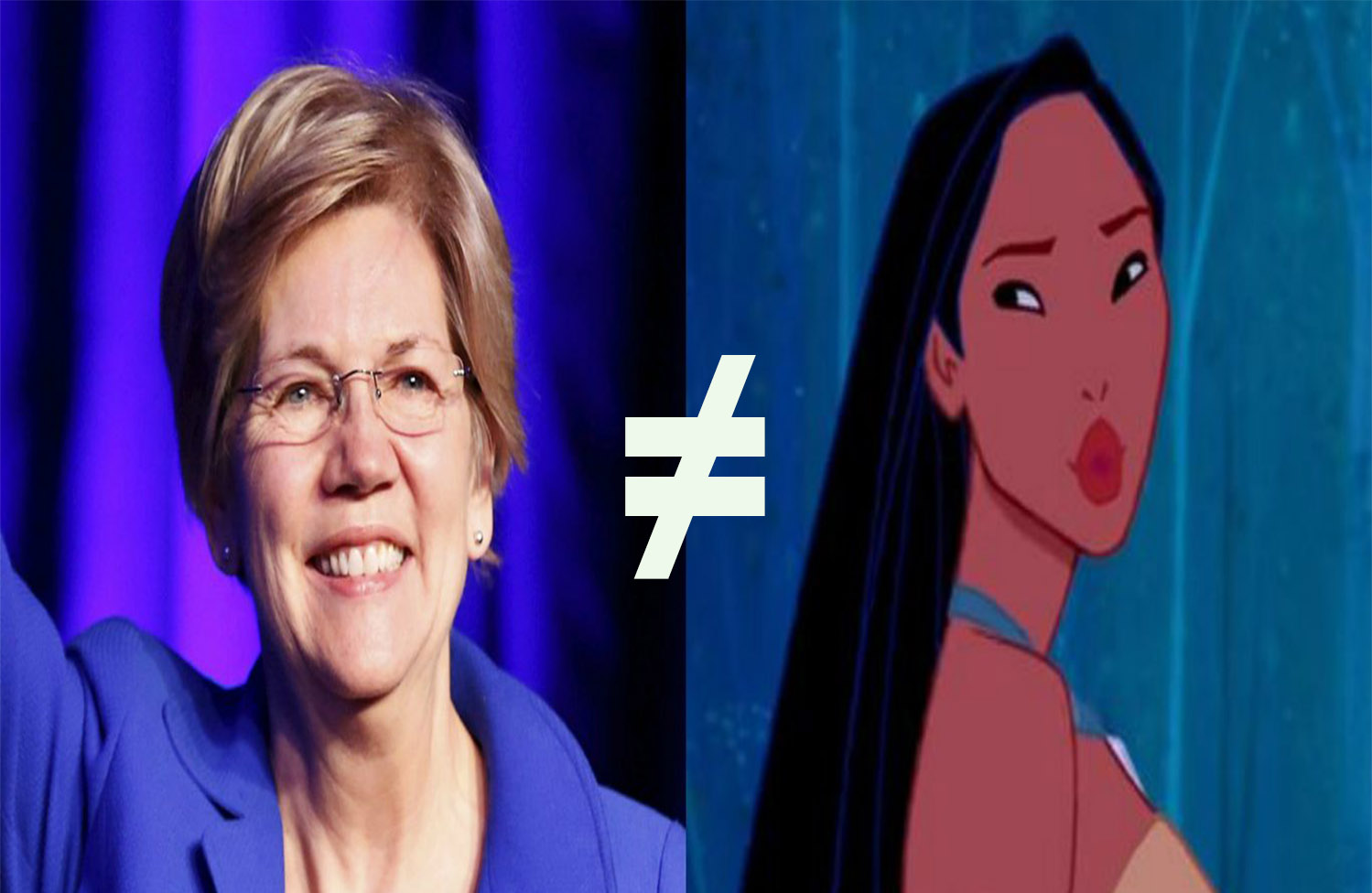Unless you belong to one of the many Native-American tribes in the U.S., you are descended from immigrants. The vibrant culture of our nation is built on the backs of people from other countries who fought tooth and nail, escaping violence and poverty, to find a better life in America.
Thousands of people, from the Honduran city of San Pedro Sula, formed a massive caravan in hopes of crossing the U.S. border. The group crossed into Guatemala on Monday and the local government detained many of the caravan’s participants. The remaining members of the caravan are still headed north. The Honduran migrants’ path to the States involves crossing over the Guatemala-Mexico border, and many are wondering how Mexico will respond, and if they will let the migrants enter the country?
The Caravan Pushes Onward
The caravan has garnered significant media attention as word of its formation spread around the world. On Tuesday, President Donald Trump threatened to cut foreign aid to Honduras if the caravan refused to turn back.

The President’s “stop-or-your-grounded” threat aside, the caravan has pressed forward. On Friday, the Honduran migrants hit a significant roadblock; the Guatemala-Mexico Border.
On Friday morning, thousands of Honduran migrants reached the binational border and were met with a massive Mexican police barricade, blocking them from entering the country. As the crowd pushed towards the blockade run by Mexican and Guatemalan law enforcement officers, at the border, cans of tear gas were launched at the group of migrants.
“Unbelievable sight on Mexican border..tear has..rocks being thrown..caravan wants to enter…not able to right now.”
–Jose Diaz-Balart Telemundo
According to Telemundo reporters on the scene, Caravan participants screamed as they were fired upon with tear gas, even though Mexican officials have vowed not to harm or mistreat any of the Hondurans.
In addition to the police blockade at Mexico’s southern-most border, Mexico’s government released a statement detailing their planned response.
Mexico’s Honduran Game Plan
- Any individual with a valid visa can enter the country without issue
- Any person wishing to be recognized as a “refugee or as a beneficiary of complementary protection measures” must do so individually. Those who elect to take this option will be held “at a migratory station” for up to 45 business days
- Anyone entering Mexico “in an irregular manner” will be “rescued and subject to the administrative procedure and, where appropriate, will be returned to their country of origin in a safe and orderly manner.”
The Honduran migration crisis at Mexico’s southern border is ironically occurring at the same time U.S. Secretary of State Mike Pompeo is visiting with Mexican government officials in Mexico City. Secretary Pompeo scheduled the visit to discuss with Mexico, in specificity, best practices for handling the Honduran refugee crisis. I find it amusing that given US-Mexico border relations, especially with the current administration’s views widely known, the two countries are talking immigration reform. It’s laughable, for sure.
Pompeo reportedly met with Mexican Foreign Relations Secretary Luis Videgaray, ho has suggested that Mexico partner with the UN refugee agency to handle the onslaught of Honduran migrants because this is a humanitarian issue. The thousand, or so, Hondurans are not leaving their country because of their impartiality to the weather; the South American country is wrought with violence and poverty.
Honduras’ security forces, emboldened with strength in the shadow of the U.S. war on drugs, have been accused of human rights abused and targeting dissidents, notably the 2016 assassination of Berta Cáceres, an environmental activist and outspoken opponent of Hernández (member of right-wing National Party in Honduras). The Washington Post called Honduras a “conduit for much of the cocaine that enters the United States, and where police and politicians are enmeshed with drug-trafficking gangs.”
This lays out a scenario where one can easily understand why residents of Honduras feel the need to relocate.
The Honduran migrants, as well as people around the world, are left with many unanswered questions about how this will play out as more caravans head for the United States.
As a descendant of Jewish immigrants who fled from Europe to escape the atrocities of the Holocaust, I empathize with the people of Honduras and hope that Mexico, Guatemala, and the United States come up with a regulated, humane response to this crisis.





